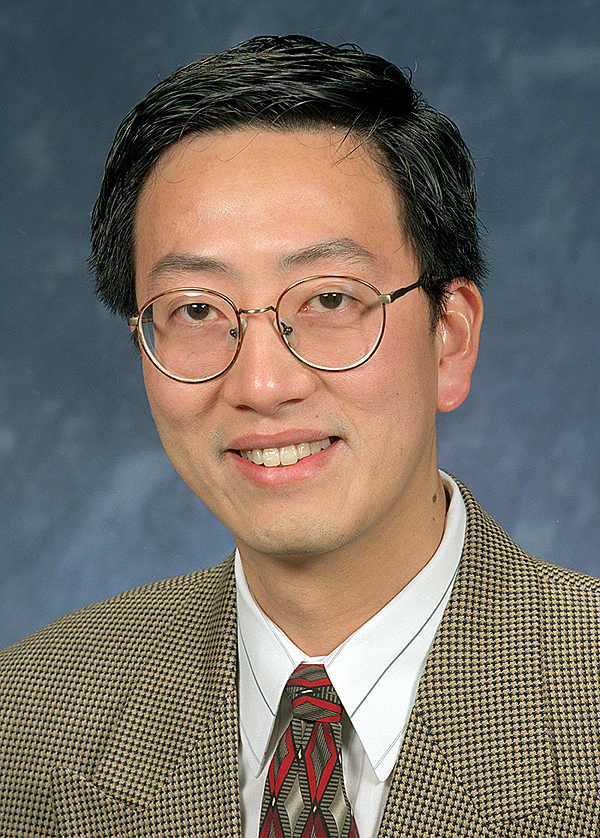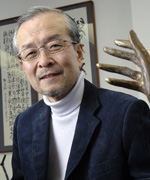Physical science organizations honor Chicago faculty members
By Steve Koppesskoppes@uchicago.edu
News Office
 David Archer |
|
 Aaron Dinner |
|
 Zheng-Tian Lu |
|
 Hisashi Yamamoto |
|
A cascade of awards is flowing to faculty members in the Physical Sciences Division, including the 2009 Walter P. Kistler Book Award, the American Chemical Society’s 2009 Award for Creative Work in Synthetic Organic Chemistry, the American Physical Society’s Francis M. Pipkin Award and the spring 2009 Hewlett-Packard Outstanding Junior Faculty Award.
The Foundation for the Future has chosen David Archer, Professor in Geophysical Sciences and the College, to receive the $10,000 Kistler Award for The Long Thaw: How Humans Are Changing the Next 100,000 Years of Earth’s Climate (Princeton University Press, 2008).
The American Chemical Society is recognizing Hisashi Yamamoto, the Arthur Holly Compton Distinguished Service Professor in Chemistry and the College, for the development of designer catalysts and reagents (chemicals used to produce certain reactions) for organic synthesis.
The American Physical Society is honoring Zheng-Tian Lu, a Senior Physicist at Argonne National Laboratory and a part-time Professor in Physics at the University, for exceptional accomplishments by young scientists in precision measurement and fundamental constants.
The Hewlett-Packard Awards program is spotlighting Aaron Dinner, Assistant Professor in Chemistry and the College, and three other outstanding tenure-track junior faculty members nationally for their computational chemistry research.
Archer will receive the Kistler Award on Thursday, April 16 at the University of Washington. The award recognizes authors of science-based books who make important contributions to the public’s understanding of the factors that may impact the long-term future of humanity.
In The Long Thaw, Archer discusses the implications of human-generated increases in the release of carbon dioxide into the atmosphere. “The benefits of using fossils fuels accrue now and into the current century until the fuel runs out, while the costs will last for millennia,” he wrote.
Nature absorbs carbon dioxide approximately half as quickly as civilization releases it. This has already resulted in regional heat waves, stronger-than-normal hurricanes, droughts and other climatic changes. A climate shift severe enough to melt the ice sheets “would rearrange the landscape and societies of the Earth,” wrote Archer.
Yamamoto held positions at Kyoto University, the University of Hawaii and Nagoya University before assuming his current post at Chicago in 2002.
“Hisashi is internationally recognized as a truly creative and prolific researcher, said Koichiro Oshima, a professor of chemistry at Kyoto University and Yamamoto’s first student. Indeed, Yamamoto has published more than 500 original papers, 65 of which were published after his move to Chicago.
Many awards have celebrated Yamamoto’s work. He won the Prelog Medal in 1993, the Chemical Society of Japan Award in 1995, the Toray Science & Technology Award in 1997, the Max Tishler Prize in 1998, Le Grand Prix de la Foundation Maison de la Chimie in 2002, the National Prize of the Purple Medal (Japan) in 2002, the Molecular Chirality Award in 2003, the Yamada Prize in 2004, the Tetrahedron Prize in 2006, the Japan Academy Prize in 2007, a Humboldt Research Award in 2007, Honorary Member of the Chemical Society of Japan, and the Grand Prize from the Synthetic Organic Chemistry Society of Japan in 2009.
The biennial Pipkind cited Lu “for development of techniques to laser cool and trap rare and radioactive atomic species; and for applications of these techniques ranging from trace isotope analysis to tests of fundamental symmetries.”
Throughout his career, Lu has developed novel techniques of laser manipulation and laser spectroscopy of atoms, applying these techniques to ultra-sensitive trace analysis, studying nuclear structure and testing fundamental symmetries.
For development of the atom trap analysis method, Lu received both the Presidential Early Career Award for Scientists and Engineers and the Department of Energy Office of Science Early Career Scientist and Engineer Award in 2000. He became an elected fellow of the APS in 2006.
As a Hewlett-Packard Outstanding Junior Faculty Award recipient, Dinner will present his work at the American Chemical Society’s national meeting in August. His project is titled, “Enhanced sampling methods for molecular systems far from equilibrium.” Gene regulatory networks are an example of such a system.
Dinner has collected four other honors since joining the Chicago faculty: a 2008 Alfred P. Sloan fellowship, a 2006 National Science Foundation Career Award; a 2005 Searle Scholar Award, and a 2003 Dreyfus New Faculty Award.
—Editor’s note: This article includes an excerpt from Chemical & Engineering News, Jan. 26, 2009.
![[Chronicle]](/images/sidebar_header_oct06.gif)